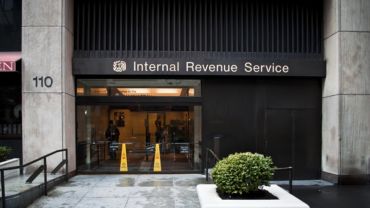The use of artificial intelligence (AI) has already had a tremendous impact in many industries, and the tax and accounting sector is no exception.
As automation and AI technologies continue to streamline tax preparation and compliance-related tasks, accountants have a golden opportunity to shift their focus toward more profitable advisory services. This transition not only enhances the value accountants bring to their clients but also positions firms to thrive in an increasingly digital and competitive landscape.
But how do CPAs take advantage of this opportunity? Let’s take a look at the current state of AI in the tax and accounting profession and how it can support the shift to advisory services.
Jump to ↓
| The current state of AI in tax and accounting |
| How can AI support the shift to advisory services? |
| What opportunities does AI present for tax and accounting professionals? |
| How can CPAs best prepare for the future of AI in tax and accounting? |
The current state of AI in tax and accounting
For most accounting firms, tax preparation is a cornerstone of their business. However, many forward-looking firms are increasingly focused on growth through not only traditional compliance but also through an advisory service model that incorporates value-based pricing, strategic client expansion, and technology integration.
As more and more accounting firms make this shift, AI-powered software plays a pivotal role in streamlining internal processes and providing data-driven client insights. By automating routine compliance tasks, such as data entry and tax preparation, accounting firms can reduce manual workload and increase accuracy. Alongside an AI-powered tax research solution, even junior staff are empowered to answer complex client questions confidently and accurately.
Moreover, AI-powered tax technology enables data analytics that offer personalized insight into client financials. From identifying trends to proactively detecting anomalies, AI not only saves time and reduces costs but also enhances the level of support firms can provide to clients.
How can AI support the shift to advisory services?
As AI increasingly handles many of the routine tasks traditionally performed by accountants, professionals can refocus their time and skills on offering personalized advice and strategic insights to clients.
Here are some of the many ways AI can support the shift to advisory services:
- Automating compliance tasks. AI reduces the burden of manual work related to tax preparation, transaction classification, and reconciliations. This frees up accountants to focus on helping clients with business growth, financial planning, and risk management.
- Offering data analysis and insights. AI tools can sift through large data sets and generate valuable insights, which accountants can use to offer clients detailed reports and forecasts. This allows accountants to provide forward-looking, data-driven advice that supports better business decision-making.
- Enabling real-time financial monitoring. AI systems can continuously monitor client data and alert accountants to anomalies or potential opportunities in real time. This enables CPAs to proactively engage with clients and offer timely advice, moving beyond reactive, after-the-fact consultations.
- Transforming tax research. By synthesizing expertly written guidance and analysis, an AI-powered tax research solution draws on thousands of primary sources and expert editorial commentary to quickly surface relevant summaries in everyday language, complete with citations.
By transforming workflow processes and unlocking data analytics and expert insight, AI enables accountants to elevate their roles from compliance professionals to trusted business advisors.
Free Guide
The Tax and Accounting professional’s guide to everything AI
If your firm hasn’t yet adopted an AI-enabled solution, and you’re unsure of how to do so, you’re in luck. This guide is designed to answer your lingering questions about the state of AI in the tax and accounting world and what it means for your firm.
What opportunities does AI present for tax and accounting professionals?
In an era where AI-powered tax technology can more efficiently handle traditional compliance work, accountants have an opportunity to establish enduring and meaningful connections with clients, resulting in a more profitable and sustainable business model.
To support this vision, real-time insights into customer behavior and preferences enabled by AI technology can create strategies tailored to every customer. This not only provides better customer service with quicker responses but also facilitates fraud detection earlier than manual methods.
Using AI tools, CPAs are now able to gain a deeper understanding of customer behavior, which they would not have been able to obtain on their own. With access to real-time data, professionals are more capable of predicting future trends in order to create effective strategies that align with current market conditions.
Furthermore, AI tools can help detect anomalies quickly during audit or investigation processes – allowing firms to respond swiftly should any discrepancies arise. This technology can also be used to better understand client needs and offer tailored advice. AI can also help to reduce errors and increase accuracy when preparing financial statements.
CPAs can also take advantage of powerful algorithms and predictive analytics that enable them to make decisions based on accurate forecasts rather than relying on assumptions or gut instinct.
How can CPAs best prepare for the future of AI in tax and accounting?
In addition to staying up to date and investing in training, CPAs should also be aware of the potential risks that come with using AI. Data privacy is a major concern when it comes to AI-based tools, and the accuracy of predictions can be an issue as well.
To address these concerns, proactive accountants opt for AI-driven tax research solutions grounded in data from trusted experts and reliable sources, steering clear of public options that draw information from the vast expanse of the internet. A professional-grade, industry-specific AI-powered tax research platform enables firms to use AI responsibly, addressing concerns over accuracy, ethical use, and data security.
It is also wise for CPAs to develop relationships with experts who specialize in implementing new technologies into existing systems so they can get the most out of any AI solutions they choose to adopt.
By taking proactive measures such as staying informed on AI advancements, investing in training, and building expert relationships, CPAs can ensure they are ready for the future of tax and accounting.
AI-powered solutions from Thomson Reuters
UltraTax CS professional tax software automates your entire tax workflow and delivers powerful, time-saving tools. UltraTax CS also seamlessly integrates with SurePrep TaxCaddy, 1040SCAN, and SPbinder, which leverage AI technology to partially automate preparation by referencing prior-year binders to replicate preparers’ actions, enhance the OCR to make non-standard documents OCR-compatible, and teach our OCR to catch its own mistakes before humans need to. You’ll never lose any billable hours to manual processing thanks to a customized, end-to-end solution built on cloud computing, advanced data sharing, and paperless processing.
CoCounsel Tax is the trusted agentic AI assistant for tax professionals, designed to simplify tax research while automating complex workflows. By leveraging CoCounsel Tax, you can significantly elevate your firm’s productivity. CoCounsel combines cutting-edge agentic AI technology and deep industry expertise to deliver precise, trusted answers to complex tax questions. By automating tedious tasks, CoCounsel Tax allows professionals to focus on strategic insights and high-value client work.
With trusted methodology, guidance, and content solutions, Practice Forward can help your firm shift from a compliance-focused model to a lucrative advisory services approach that engages and sustains clients. Through your Practice Forward implementation, you have access to over 160 tools, including proposal templates, pricing calculators, and checklists, paired with personalized consulting.
For more information on advisory services and the impact of AI in the tax and accounting industry, we invite readers to explore our resources below:
 |
|
 |
|











